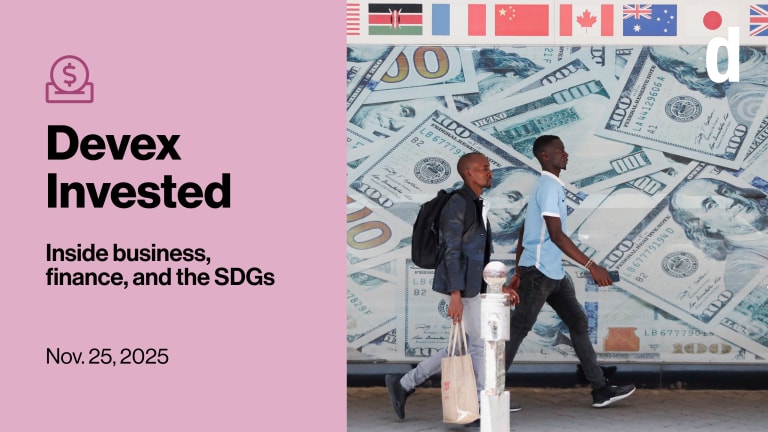
Leaders of the 20 largest economies have pledged $850 billion to support international financial institutions, including the once stagnant International Monetary Fund, to confront the global economic downturn. The summit affirmed the role of emerging markets in shaping a post-crisis world economy, and capital markets in Europe and Asia rallied upon the news of the G-20 commitments.
The London Summit also called for the establishment of a “financial stability board” to prevent financial crises in the future. The board will include representatives from all G-20 nations, including India and South Africa.
“The old Washington Consensus is over, today we have reached a new consensuses that we take global action together to deal with the problems we face,” said U.K. Prime Minister Gordon Brown, the event’s host.
The newly pledged funding would increase IMF lending by $500 billion and create an “overdraft” facility of another $250 billion for poorer countries. The world leaders are also asking IMF to devise a plan this spring for selling IMF gold, “together with surplus income, to provide $6 billion additional concessional and flexible finance for the poorest countries over the next two to three years.”
Prior to the financial downturn, IMF had a meager portfolio of outstanding loans and some pundits called for the institution’s overhaul or disbandment.
The World Bank and its regional sister banks will see $100 billion in additional support.
The new funding will help to finance counter-cyclical spending, bank recapitalization, infrastructure, trade finance, balance of payments support, debt rollover, and social support for emerging and developing markets.
Along with increased IFI funding and mandates, the summit’s participants have agreed to several key measures to reform the international financial system, including:
The creation of a $250 billion trade financing facility.
A policy of “naming and shaming” countries that enact protectionist trade barriers.
Development of an “early warning system” to prevent future financial meltdowns to be jointly administered by the IMF and the new financial stability board.
A 200 percent general capital increase for the Asian Development Bank.
Review of the need for capital increases at the Inter-American Development Bank, the African Development Bank and the European Bank for Reconstruction and Development.
Greater transparency in global capital flows, including the imposition of sanctions on non-compliant “tax havens.”
A common global approach to deal with “toxic” assets.
At the event’s final press conference, U.S President Barack Obama announced that his administration will work with Congress to contribute $1 billion in “food safety” aid and $448 million to immediately assist vulnerable populations “from Africa to Latin America.”
“This is not just charity, these are all future markets for all countries and future drivers of world economic growth,” Obama said.
Although a central theme of the summit was the inclusion of emerging and developing markets in drafting and implementing the summit’s agenda, there were no commitments to restructure IFIs boards or directors.
The London Summit carried the tag-line “Growth-Stability-Jobs.” The participants agreed to a follow-up meeting, to be held toward the end of this year.








